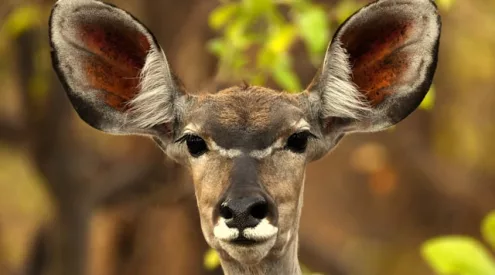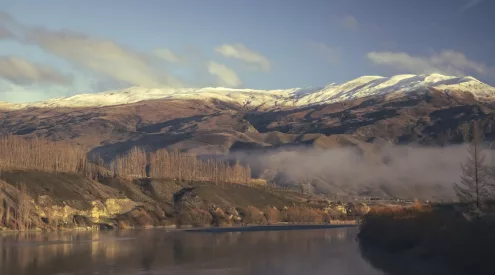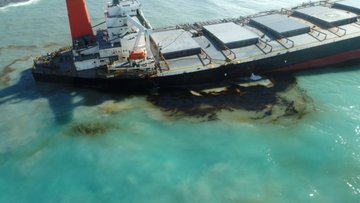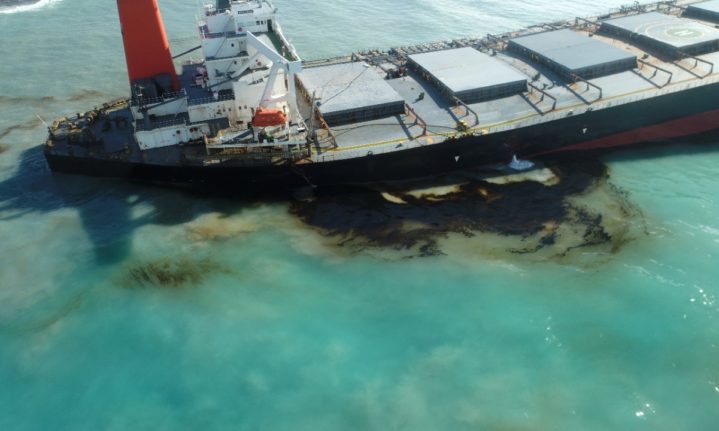The oil spill in Mauritius has occurred near two marine protected areas as well as the Blue Bay Marine Park reserve. The island nation relies heavily on its pristine oceanic ecosystem as a draw-in for tourists.
Tourism contributed $1.6-billion to the economy in 2019, according to Al Jazeera.
The proximity of the oil spill and its threat to endangered fauna and flora led to the spill being called an ecological disaster. Prime Minister Pravind Kumar Jugnauth declared a state of environmental emergency on Friday, August 7.
The Mauritian marine environment has 1,700 species which includes 2 turtle species, approximately 800 fish species and 17 different marine mammals, according to BBC.
Mauritius is also home to abundant coral reefs, mangroves and sea grasses which contribute to the marine biodiversity.
Volunteers in Mauritius are helping to clean the oil spill from a Japanese oil tanker. They are creating cordons to keep spilled oil away from the island.
This is threatening thousands of rare species. pic.twitter.com/kPvfILXAr2
— Africa Facts Zone (@AfricaFactsZone) August 12, 2020
Dr Corina Ciocan, a senior lecturer in marine biology at the UK’s University of Brighton said: ‘There are very few such marine areas with such rich biodiversity left on the planet. An oil spill like this will impact almost everything there. It is not just about the light oil slick you see on the surface of the water caused by the spill. There will also be soluble compounds from the oil that will dissolve in the water, a mousse-like layer underneath the surface of the water, and then very heavy residues on the bed – so the entire marine ecosystem will be affected,’ according to BBC.
‘Thousands of species around the pristine lagoons of Blue Bay, Pointe d’Esny and Mahebourg are at risk of drowning in a sea of pollution, with dire consequences for Mauritius’ economy, food security and health,’ Happy Khambule from Greenpeace Africa said in a statement.
Mauritians have been volunteering to help contain the oil spill by making barriers from sugar cane leaves and fabric sacks.
It is estimated that 1,000 metric tons of oil has leaked from the ship already, according to CNN.
The oil spill is devastating to the marine animal population that have been already declining in recent years. A state of environmental emergency has been declared. But unfortunately, Mauritius is insufficiently equipped to handle this problem. #EnvironmentalEmergency
(2/4) pic.twitter.com/pjwE6YvnwS— Zoya Hussain (@Iamzoyahussain) August 9, 2020
Prime Minister Jugnauth announced that almost all the remaining oil from the Nagashiki Shipping vessel has been removed, according to BBC. The oil has been pumped out and Jugnauth called the operation ‘a race against time’.
Part of the fuel was taken to another ship owned by the Japanese company and transported by helicopter to the island.
A small amount of oil remains onboard and cracks in the hull are threatening to break the ship apart.
Police spokesperson Shiva Cooten said there is still work that needs to be done ‘but the situation is all under control,’ according to BBC.
‘It is difficult to say when it will break but we have a boom deployment plan with the French Navy helping and we have made provisions for high sea booms,’ said Chief of Police, Khemraj Servansing to BBC.
While the clean up operations are a sliver of hope, the impact of the oil spill will remain for years to come. Coral bleaching is one the biggest concerns.
The health of the coral reefs plays a vital role in sustaining marine life. Coral bleaching will have a knock-on effect on the organisms that depend on them. It will also heavily impact the growth and reproduction of the coral, according to the Earth Institute of Columbia University.
‘Coral bleaching matters because once these corals die, reefs rarely come back. With few corals surviving, they struggle to reproduce, and entire reef ecosystems, on which people and wildlife depend, deteriorate,’ said World Wildlife Fund for Nature (WWF).
Vikash Tatayah, conservation director at Mauritius Wildlife Foundation, a non-governmental organisation spoke to Reuters and said that the spill has set Mauritius back by two decades in terms of restoring natural wildlife and plants in the lagoon.
France has deployed a military aircraft from Réunion containing pollution control equipment to help clean up and contain the spill. Japan has also sent a team of six people to help with the clean up.
A massive oil spill occurred off the shore of Mauritius, causing immense ecological devastation of its ocean ecosystem.
It is yet another example of the risks posed by oil >> https://t.co/6o9yGslPqi #BreakFreeFromFossilFuels
.@africanews pic.twitter.com/HhHWHmWlIC— Greenpeace Africa (@Greenpeaceafric) August 11, 2020
Image credit: Twitter/ GreenPeace Africa


















